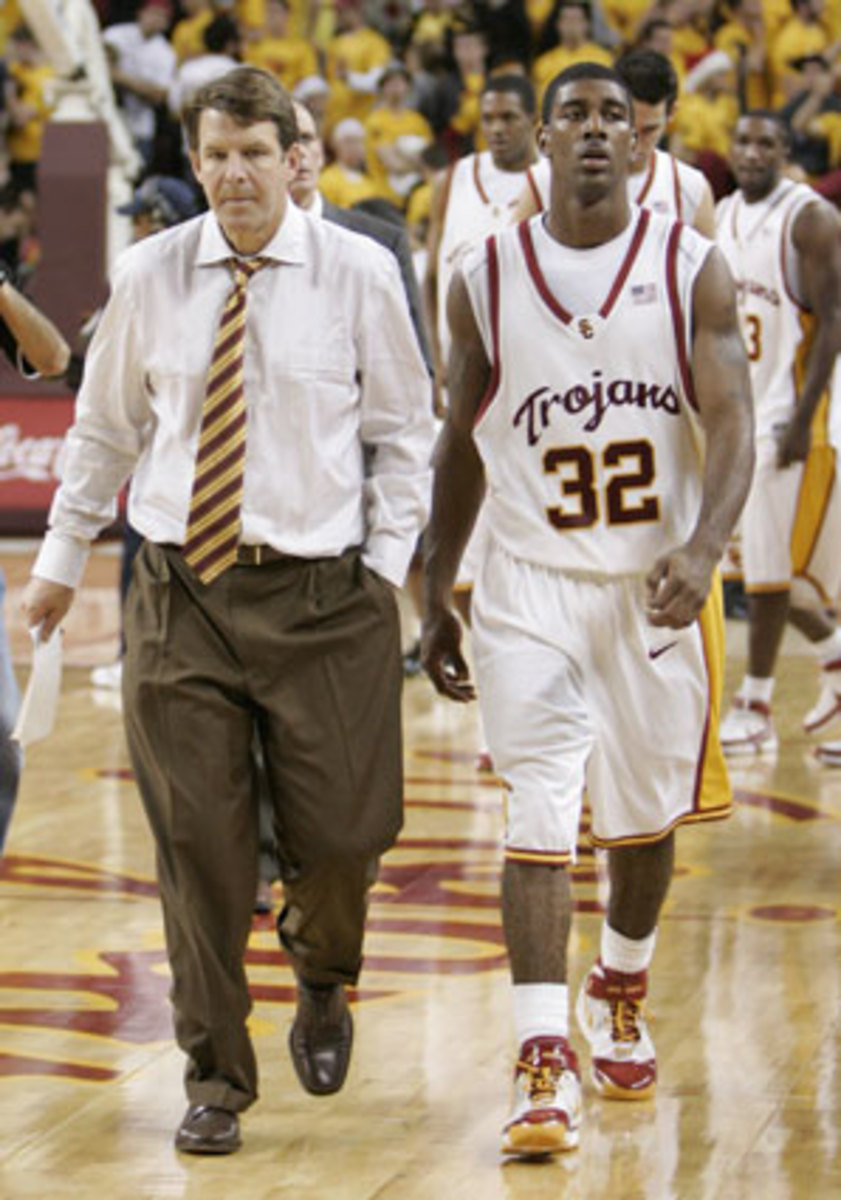Clawback clauses in contracts could deter coaches from breaking rules
It is a common storyline in the annals of NCAA scandals.
A program is accused of violating the rules and the head coach is clearly culpable. Perhaps he gave money to a player or violated recruiting rules or was aware of academic fraud and did nothing to stop it. The coach either resigns or is fired, exiting in the heat of the scandal.
Months later, when the NCAA and/or the school decide on sanctions, the brunt of the punishment falls on the team and its new coach. A ban from postseason play, scholarship reductions, recruiting restrictions. Whatever the case, they hinder players who had nothing to do with the wrongdoing and a coach who wasn't even on campus when the violations occurred.
Most recently, that scenario that played out at USC, where basketball coach Tim Floyd resigned after allegations that he gave one of O.J. Mayo's handlers money. When the school announced self-imposed penalties last month, the team had its postseason dreams dashed among other restrictions, and Floyd, now an assistant coach with the New Orleans Hornets, got off scot-free.
It is a flaw in the system, one that frustrates athletes and fans.
But there is a relatively simple way to fix it.
In the wake of the economic collapse, "clawback" provisions have become more common in the contracts of Wall Street executives. These clauses enable companies to recover compensations such as bonuses for a variety of reasons, including the uncovering of a scandal or if certain performance goals are not reached. A recent editorial in The New York Times called for clear clawback provisions for board members of major banks as part of a financial reform package.
Collegiate athletic programs should do the same: Insert clawback provisions into the contracts for coaches, clauses clearly written that would force a coach to pay back part of his salary should he or his program violate NCAA rules.
"It is an interesting idea," says Mike Bobinski, the athletic director at Xavier. "If that were to happen it would surely cause some more thought for a coach whether to go down the road [of breaking NCAA rules]. It would be another layer of deterrent for that kind of behavior."
Bobinski said he has never heard of that kind of clause in a contract; and the legalese in crafting such a provision would be difficult. A coach couldn't be held accountable for everything, so the lines of what would and wouldn't trigger the clawback would need to be clear. "But it is not impossible," Bobinski says. "Complicated, but not impossible."
One agent for several college coaches said that he wouldn't advise his clients to sign a contract with a clawback provision without incentive. One possibility: more money. If a coach's salary is $1 million a year, offer him $1.25 million if he agrees to a clawback provision.
"On one hand, if you feel like the potential for NCAA violations is a concern on the front end, maybe you need to think twice about the coach you are considering hiring," Bobinski says. "But it is also hard for coach to argue with the intent. A school is saying that it is happy to pay as long as the program is being run as it was expected to be run."
What would it take for a school to be the first to insert a clawback clause into a contract?
It would take a program with enough money to pay the incentive and also a job so attractive that it would be worth the risk for the coach. Among basketball programs that hired a new coach this past offseason, Kentucky is the obvious candidate. Given John Calipari's history -- at his two previous stops, UMass and Memphis, Final Four appearances were voided because of scandals -- a clawback makes perfect sense. And the Kentucky job is so coveted that if a clawback were a deal breaker for Calipari, surely another coach would jump at the opportunity.
If a school wanted, it could attach a clawback provision to just about anything. It is common for coaches to receive a bonus for a high graduation rate or GPA, but these are usually small amounts relative to their total salary. For a school where academic reputation trumps the need for national titles (such as at Stanford), a clawback clause would better assure that a coach didn't compromise the school's mission by recruiting ill-prepared students or neglecting academics.
To start, schools should keep it simple and only introduce the clawback provision in regards to NCAA violations. If USC had put one into Tim Floyd's contract, the current players and coach would still suffer because of the NCAA sanctions, but at least they'd know that Floyd was going to suffer some too.
Says Bobinski, "It would make people feel that at least some of the punishment is going to the right place."






